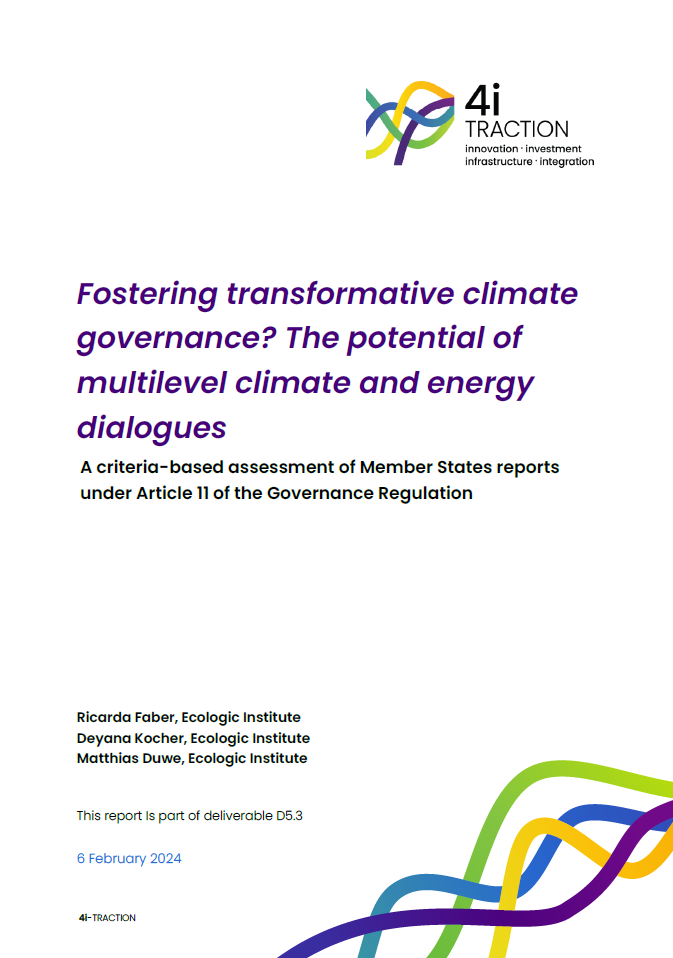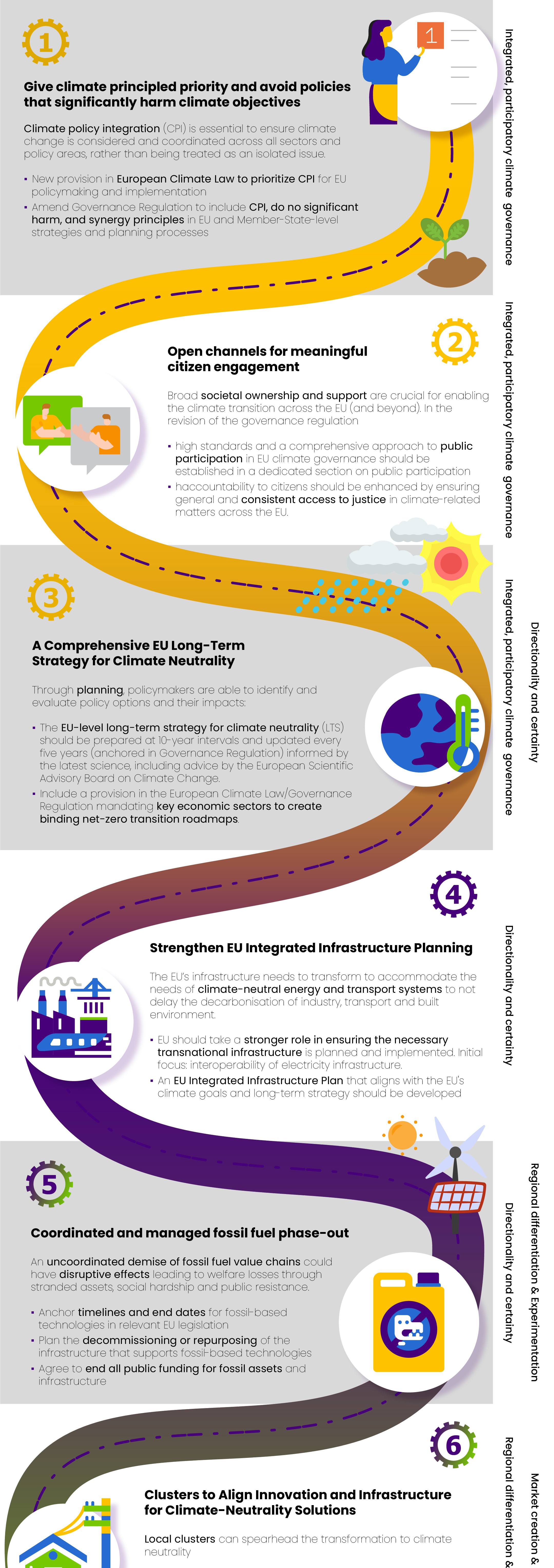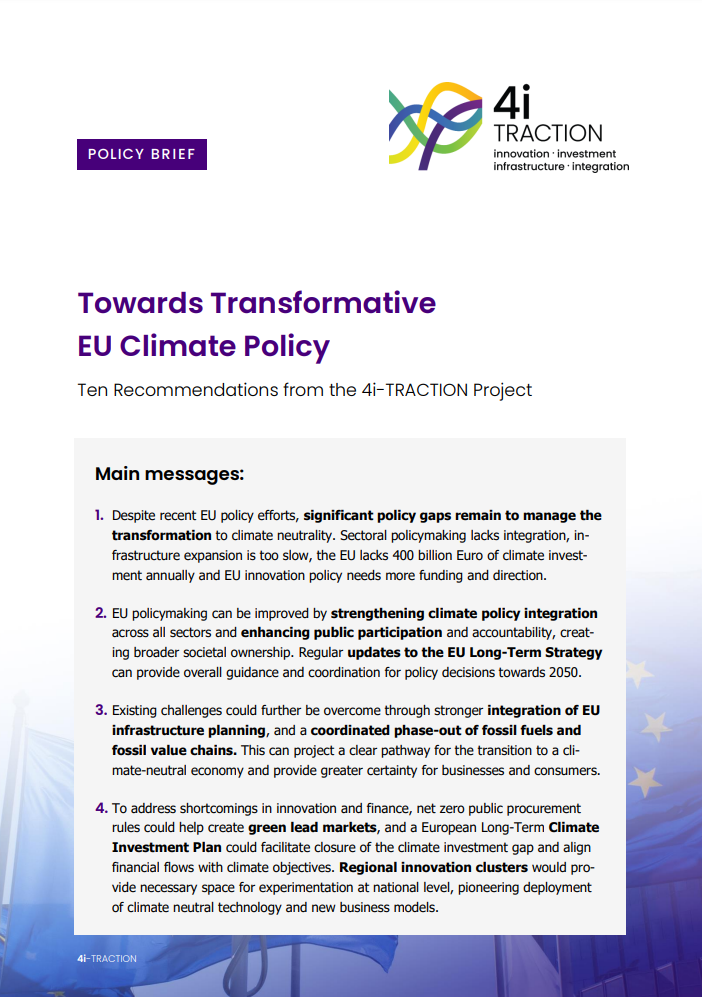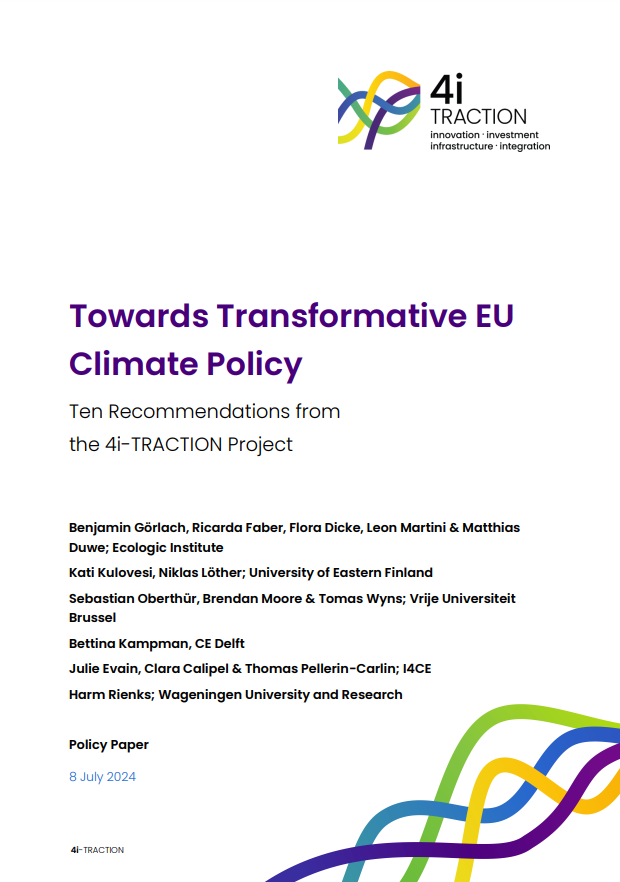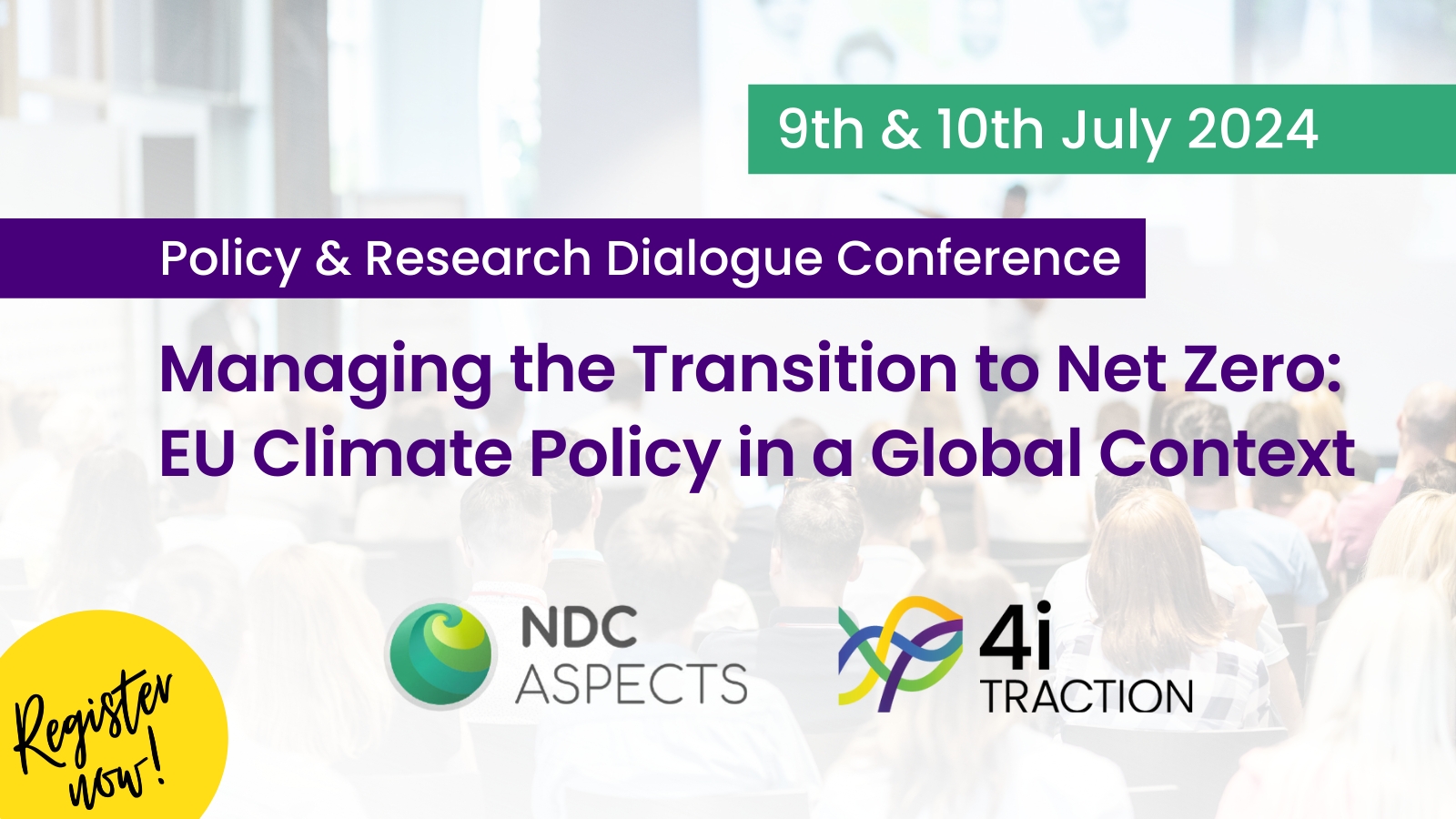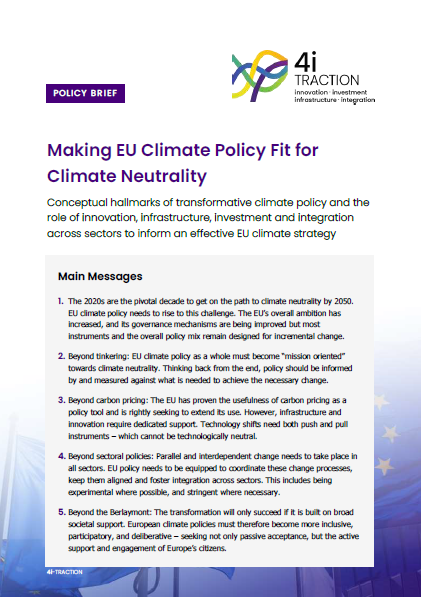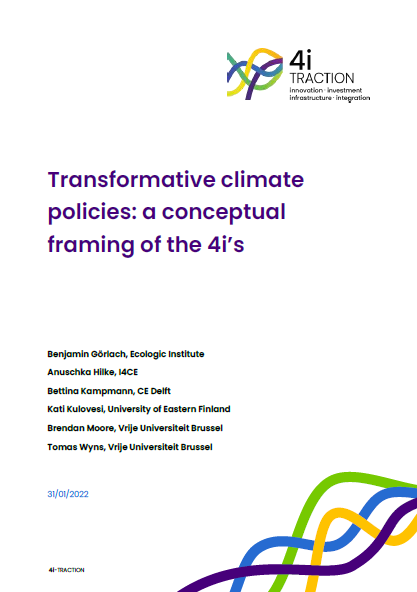Fostering Transformative Climate Governance? The potential of multilevel climate and energy dialogues
A criteria-based assessment of Member States reports under Article 11
- Publication
- Citation
Faber, R., Kocher, D., Duwe, M. (2024): Fostering transformative climate governance? The potential of multilevel climate and energy dialogues. A criteria-based assessment of Member States’ reports under Article 11 of the Governance Regulation. Ecologic Institute; Berlin.
Multilevel climate policy integration through participatory governance processes
As a specific procedural innovation under the EU's Governance Regulation (GovReg) (EU 2018/1999), Member States must implement permanent structures for multilevel climate and energy dialogues (MLCEDs) and report on progress in doing so. Integrating climate policy across sectors by for example involving multiple levels of government and a diversity of stakeholders in climate policy decision-making processes is a key element in fostering transformative climate governance. Such processes can generate additional information and political support for the design and implementation of policies towards a climate-neutral future.
The assessment follows a criteria-based analysis of 26 available Member States’ progress reports in addition to 11 semi-structured interviews with relevant stakeholders in seven Member States. It is thus possible that the results are biased by the quality of these reports. Further in-depth research could verify the findings and fill existing information gaps.
The assessment uncovers the following key insights:
Weak progress on Member States current MLCED implementation
- Half of MS report on permanent MLCEDs, with new dialogues deployed in most countries and in a variety of formats, unclarity persists.
- Half the reported dialogues are not explicitly shown to be multilevel.
- Stakeholder coverage needs improvement.
- Active stakeholder engagement and discussion are well provided for.
- Mandatory thematic scope is largely not explicitly addressed, NECPs dominate the reporting.
Mechanism’s design is adequate in principle, but implementation is not fit for net zero
- Mechanism's overall effectiveness: Design in principle creates potential for the MLCEDs as it entails crucial elements of a just transition of the EU’s economies.
- Mechanism's resilience: Design provides a significant degree of policy resilience due to the mandatory regular evaluation process (Article 45, GovReg) that allows for adjustment of the legislation in response to political salience.
- Mechanism's quality of implementation: Problems with the quality of the implementation suggest that the mechanism’s desired functions, e.g., fostering participation and, thus, integrative and deliberative decision-making processes are currently not met – at least for many if not most Member States.
What could be done?
- Add specification on what the dialogues' intended objectives and adequate formats are in Article 11 in the upcoming revision of the Governance Regulation.
- Expand reporting requirements with more detail concerning all aspects mentioned in the law.
- Improve the quality assurance and quality control (QAQC) process concerning the submissions, rejecting insufficiently detailed reports and asking Member States for more information.
- Implement a follow-up on the dialogues and their implementation in the Regulation as a process. An exchange of experiences thus far and lessons learned could improve existing practice and increase the political visibility of the dialogues, adding weight to the importance of their adequate implementation.
